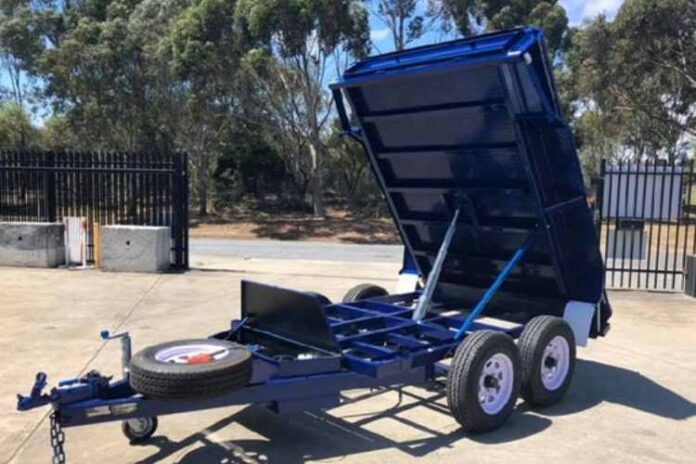It’s a blessing when you can easily transport vast quantities of goods from one place to another. Trailers have been doing this for decades, but then, the primary hassle was the emptying, especially when it came to loose materials such as soil or cement. But thankfully, with their tipping function, tipper trailers have made emptying easier. They help save time and effort, but some precautions must be taken while operating them. It’s in your best interest to be mindful of these precautions since it’s not uncommon to have tippers roll over! So, this guide will discuss all the precautionary use of tipping trailers.
Safely Connecting the Tipping Trailer
The best time to determine whether or not your trailer is in a healthy condition is before you get the tipping function going. So, while the trailer is stationary, gently plug in the tipper box and move the trailer up and down using the controls.
It would help if you used your senses here, mainly your sense of sight, sound, and smell, to ensure your tipper trailer is in good working condition. And once everything looks OK, let it charge overnight, so it’s ready for use the next day.
Not only that, but it’s critical to have a braking device as a provision in case there’s a hydraulic failure, as the braking device will prevent the tray from falling. Also, don’t forget to remove the tailgate and rear cage before you begin the tipping process, and now, you need to check whether the tub is down. As such, do not move the vehicle forward unless the tub is down, and also, do not drive with the tray in the upward position.
Considering the Surroundings
Before using these trailers, ensure enough space for the tray to lift and the pre-ripper to move. Not doing so increases the chances of damage to your trailer, the surroundings, and the people involved.
Another essential thing to keep in mind (which a lot of trailer drivers ignore!) is to ensure the ground underneath is well-levelled. Uneven or bumpy grounds have caused many a tipping trailer to lose balance and topple over. Then, the vicinity of the trailer should be free of any bystanders. This includes yourself, so don’t stand too close to the hydraulic system or the trailer tray. This is because clothing, hair, etc., can easily get caught in the system. Moreover, ensure that you do not get underneath the tray to stay safe in case the hydraulic system fails and the trailer tray lowers suddenly. Finally, you must load the tipping trailer as per its recommended weight allowance.
Be wary of overloading the trailer, as that could impact the trailer’s function significantly. You also need to ensure that the weight is evenly distributed across the entire trailer to avoid misbalance. Also, the weight should not be piled too high.
These trailers are extremely useful as they help with different applications such as construction, excavation, building, landscaping, etc. But, just ensure the manufacturer specialises in strong and durable make and materials. Usually, suppliers offer a range of tipper trailers, so choose as per your needs and load it with any kind of loose material such as rubble, soil, sand, garden waste, etc. Also, make sure you do enough research to find the perfect trailer before you head for tipping.

























